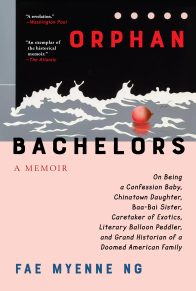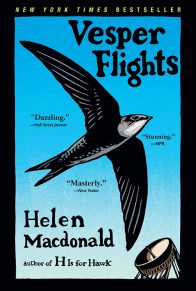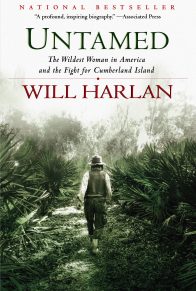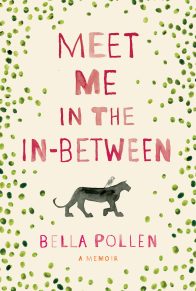“Breathtaking . . . Helen Macdonald renders an indelible impression of a raptor’s fierce essence—and her own—with words that mimic feathers, so impossibly pretty we don’t notice their astonishing engineering.”—Vicki Constantine Croke, New York Times Book Review (cover review)
“One of a kind . . . Macdonald is a poet, her language rich and taut. . . . As she descends into a wild, nearly mad connection with her hawk, her words keep powerful track. . . . [She] brings her observer’s eye and poet’s voice to the universal experience of sorrow and loss.”—Barbara Brotman, Chicago Tribune
“Captivating and beautifully written, it’s a meditation on the bond between beasts and humans and the pain and beauty of being alive.”—People (Book of the Week)
“One of the loveliest things you’ll read this year . . . You’ll never see a bird overhead the same way again. A-“—Jason Sheeler, Entertainment Weekly
“Had there been an award for the best new book that defies every genre, I imagine it would have won that too. . . . Coherent, complete, and riveting, perhaps the finest nonfiction I read in the past year.”—Kathryn Schulz, New Yorker
“An elegantly written amalgam of nature writing, personal memoir, literary portrait and an examination of bereavement. . . . It illuminates unexpected things in unexpected ways.”—Guy Gavriel Kay, Washington Post
“To categorize this work as merely memoir, nature writing or spiritual writing would understate [Macdonald’s] achievement . . . her prose glows and burns.”—Karin Altenberg, Wall Street Journal
“Dazzling.”—Kate Guadagnino, Vogue
“[A] singular book that combines memoir and landscape, history and falconry . . . it is not like anything I’ve ever read . . . what Macdonald tells us so eloquently in her fine memoir [is] that transformation of our docile or resigned lives can be had if we only look up into the world.”—Susan Straight, Los Angeles Times
“The art of Macdonald’s book is in the way that she weaves together various kinds of falling apart—the way she loops one unraveling thread of meaning into another. . . . What’s lovely about [it] is the clarity with which she sees both the inner and outer worlds that she lives in.”—Caleb Crain, New York Review of Books
“Macdonald’s experience of bonding with her goshawk Mabel opens a bright window into the bond between people and animals, deepening our understanding of our role as custodians of the natural world.”—Oprah Daily, “Memoirs That Changed a Generation”
“Extraordinary . . . indelible . . . [it contains] one of the most memorable passages I’ve read this year, or for that matter this decade . . . Mabel is described so vividly she becomes almost physically present on the page.”—Lev Grossman, TIME
“One of the most riveting encounters between a human being and an animal ever written.”—Simon Worrall, National Geographic
“Assured, honest and raw . . . a soaring wonder of a book.”—Daneet Steffens, Boston Globe
“One of the best books about nature that I’ve ever read. Macdonald’s wonderful gift for language and her keen observations bring pleasure to every page.”—Karen Sandstrom, Cleveland Plain Dealer
“The echoes of myth in Macdonald’s writing, however subtle and unobtrusive, lend her book an emotional weight usually reserved only for literature, and a grace only for poetry. But this is one of the book’s great achievements: to belong to several genres at once, and to succeed at all of them.”—Madeleine Larue, The Millions
“A unique and beautiful book with a searing emotional honesty, and descriptive language that is unparalleled in modern literature.”—Costa Book Award
“An inspired, beautiful and absorbing account of a woman battling grief—with a goshawk. . . . Writing with breathless urgency . . . Macdonald broadens her scope well beyond herself to focus on the antagonism between people and the environment. Whether you call this a personal story or nature writing, it’s poignant, thoughtful and moving—and likely to become a classic in either genre.”—Kirkus Reviews (starred review)
“In this profoundly inquiring and wholly enrapturing memoir, Macdonald exquisitely and unforgettably entwines misery and astonishment, elegy and natural history, human and hawk.”—Donna Seaman, Booklist (starred review)
“Unsparing, fierce . . . a superior accomplishment. There’s not a line here that rings false; every insight is hard won . . . Macdonald has found the ideal balance between art and truth.”—David Laskin, Seattle Times
“Gorgeous.”—Diane Rehm, The Diane Rehm Show
“A wonder both of nature and of meditative writing.”—Maureen Corrigan, Fresh Air with Terry Gross
“To read Helen Macdonald’s new memoir is to have every cell of your body awake and alive.”—Robin Young, Here and Now
“[With] sumptuously poetic prose . . . there is deft interplay between agony and ecstasy, elegy and rebirth, wildness and domesticity, alongside subtle reminders about the cruelty of nature and our necessary faith in humanity.”—Malcolm Forbes, Minneapolis Star Tribune
“[Macdonald’s] writing—about soil and weather, myth and history, pain and its slow easing—retains the qualities of [her hawk] Mabel’s wild heart, and the commanding scope and piercing accuracy of her hawk’s eye.”—Joanna Scutts, Newsday
“A triumph.”—Nick Willoughby, Salon
“A genre-busting dazzler of a book, worthy of the near-universal accolades that it’s received so far.”—Elisabeth Donnelly, Flavorwire
“Extraordinary . . . Macdonald elegantly weaves multitudinous and extremely complex issues into a single work of seamless prose.”—Lucy Scholes, The Daily Beast
“The hawk-book’s form is perfect. It prickles your skin the way nature can when you are surprised by an animal in your path. Some books are not books but visitations, and this one has crossed its share of thresholds before arriving here, to an impossible middle perch between wilderness and culture, past and present, life and death.”—Katy Waldman, Slate
“It sings. I couldn’t stop reading.”—Mark Haddon
“H is for Hawk is a work of great spirit and wonder, illuminated equally by terror and desire. Each beautiful sentence is capable of taking a reader’s breath. The book is built of feather and bone, intelligence and blood, and a vulnerability so profound as to conjure that vulnerability’s shadow, which is the great power of honesty. It is not just a definitive work on falconry; it is a definitive work on humanity, and all that can and cannot be possessed.”—Rick Bass
“A lovely touching book about a young woman grieving over the death of her father becoming rejuvenated by training one of the roughest, most difficult creatures in the heavens, the goshawk.”—Jim Harrison
“In addition to being an excellent memoir of loss and grief, H is for Hawk is a wonderful exploration of how birds of prey can function as metaphor to produce art and a roadmap for human lives. Read it and enrich your life.”—Dan O’Brien
“Rich with the poetry of ideation, the narrative flows through the author’s deeply textured story of personal loss like a mountain wind, swirling seamlessly through fields of literature, biology, natural history, and the art of hunting with hawks. Readers might do well to absorb this book a bite at a time—but be prepared for a full meal.”—Lynn Schooler
“A beautiful book on so many levels. Macdonald fearlessly probes each facet of grief and traverses its wilderness to reach redemption. But most beautiful of all is the complex, layered bond that builds between her and Mabel, her hawk. Who would have guessed that human and bird could share so much?”—Jan DeBlieu
“My favorite book, reincarnated: If you ever wondered what would happen if Sam from My Side of the Mountain grew up, loved, ached, and discovered himself in the heart of an ugly creature, you’ll find the answer in H is for Hawk. ‘The wild can be human work,’ Hawk tells us, which is one reason you’ll have to buy a copy—I’m never lending mine.”—Christopher McDougall
“In this elegant synthesis of memoir and literary sleuthing . . . Macdonald describes in beautiful, thoughtful prose how she comes to terms with death in new and startling ways.”—Publishers Weekly
“A dazzling piece of work: deeply affecting, utterly fascinating and blazing with love . . . a deeply human work shot through, like cloth of gold, with intelligence and compassion—an exemplar of the mysterious alchemy by which suffering can be transmuted into beauty. I will be surprised if a better book than H is for Hawk is published this year.”—Melissa Harrison, Financial Times
“More than any other writer I know, including her beloved [T.H.] White, Macdonald is able to summon the mental world of a bird of prey . . . she extends the boundaries of nature writing. As a naturalist she has somehow acquired her bird’s laser-like visual acuity. As a writer she combines a lexicographer’s pleasure in words as carefully curated objects with an inventive passion for new words or for ways of releasing fresh effects from the old stock. . . . Macdonald looks set to revive the genre.”—Mark Cocker, Guardian
“A talon-sharp memoir that will thrill and chill you to the bone . . . Macdonald has just the right blend of the scientist and the poet, of observing on the one hand and feeling on the other.”—Craig Brown, Daily Mail
“What [Macdonald] has achieved is a very rare thing in literature—a completely realistic account of a human relationship with animal consciousness. . . . Her training of Mabel has the suspense and tension of the here and now. You are gripped by the slightest movement, by the turn of every feather. It is a soaring performance and Mabel is the star.”—John Carey, Sunday Times
“A well-wrought book, one part memoir, one part gorgeous evocation of the natural world and one part literary meditation . . . lit with flashes of grace, a grace that sweeps down to the reader to hold her wrist tight with beautiful, terrible claws. The discovery of the season.”—Erica Wagner, Economist
“Macdonald is a virtuoso writer, and her beautiful, troubling, deeply honest memoir incisively captures our fractured relationship with the natural world.”—The Week
“The magnificent H is for Hawk [has] grabbed me by its talons . . . [it’s] nature writing, but not as you know it. Astounding.”—Caroline Sanderson, The Bookseller
“This beautiful book is at once heartfelt and clever in the way it mixes elegy with celebration: elegy for a father lost, celebration of a hawk found – and in the finding also a celebration of countryside, forbears of one kind and another, life-in-death. At a time of very distinguished writing about the relationship between human kind and the environment, it is immediately pre-eminent.”—Andrew Motion
“A deep, dark work of terrible beauty that will open fissures in the stoniest heart. . . . Macdonald is a survivor . . . she has produced one of the most eloquent accounts of bereavement you could hope to read . . . A grief memoir with wings.”—The Bookseller
“A book made from the heart that goes to the heart . . . It combines old and new nature and human nature with great originality. No one who has looked up to see a bird of prey cross the sky could read it and not have their life shifted.”—Tim Dee, author of The Running Sky
“The most magical book I have ever read.”—Olivia Laing














